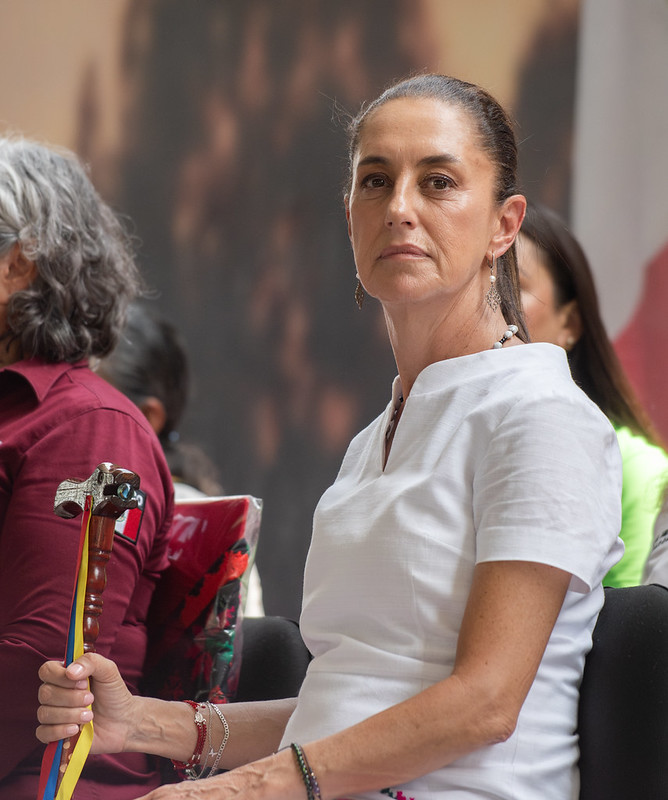
Claudia Sheinbaum, former Mexico City mayor, won a resounding victory in the elections and will be the next president of Mexico.
“Without a doubt, this is a weakening of democracy because citizens are afraid to go out to vote, or they do not see the point in going out to vote, if it seems that crime is dominating, who defines who can be a candidate, who does campaign.”
Summary: Recently completed elections in Mexico, the largest in the country’s history, were also the most violent in its history. Election-related violence portends greater control of criminal organizations over politics.
Mexico’s 2 June elections were highly anticipated, and the results closely watched. It was the largest election in Mexico’s history, with more than 20,000 seats contested at local, state, and federal levels.[i] While coverage of the election tended to focus on breaking the glass ceiling—both major candidates were women, a first in a country known for “machismo”—the elections were also marred by intense violence, assassinations, and kidnappings.[ii]
The business-focused Mexican daily El Economista, reported that as the campaign closed, more than 30 candidates for public office, and approximately 50 people close to candidates or working for candidates, had been assassinated during the campaign season—the most violent campaign season on record. There were also countless attacks, threats, and intimidation against family members and friends of candidates, and hundreds more were murdered at campaign events, the outlet states. Further, the newspaper relays that most of the victims were candidates for local office, where organized crime groups seek to control public officials. 272 separate attacks were recorded during the campaign season, many of them in central and southern Mexican states afflicted by violence and contestation between criminal groups. Spanish international news agency EFE, says that election violence dampens democratic enthusiasm and participation. The outlet cites a datapoint of note: each assassination can reduce participation rates by up to 3 percent in a locality. EFE also reports that at least 168 polling stations around the country did not operate due to violence and security concerns.
Election-related violence also indicates the changing model of territorial control most criminal organizations seek to implement. Criminal organizations have taken to assassinating political opponents and candidates they deem as too independent.[iii] And, rather than corrupting sitting politicians, criminal groups seek to install their candidates in the most important local offices. Mexico’s election-related violence demonstrates the country’s slide into greater insecurity has grave consequences for the operational environment.
Sources:
“Los mexicanos salen a votar en las elecciones más grandes de la historia y también las más violentas (Mexicans go out to vote in the largest elections in history and also the most violent),” El Economista (a Mexican daily mostly focused on business and finance), 2 June 2024. https://www.eleconomista.com.mx/politica/Los-mexicanos-salen-a-votar-en-las-Elecciones-mas-grandes-de-la-historia-y-tambien-las-mas-violentas-20240602-0003.html
Since the political campaigns began, 30 candidates for public office and nearly 50 leaders or sympathizers related to the electoral process have been murdered…The elections, in which just over 20,000 public positions will be elected…are being held under the shadow of violence that has left a record of murdered candidates, fueling concerns about democracy in the country…The fatalities are mostly aspirants, pre-candidates, or candidates for municipal positions.
“Las elecciones más grandes de México también pasarán a la historia como las más violentas (Mexico’s biggest elections will also go down in history as the most violent),” EFE (a Spanish international news agency with regional coverage), 2 June 2024. https://efe.com/mundo/2024-06-02/las-elecciones-mas-grandes-de-mexico-tambien-pasaran-a-la-historia-como-las-mas-violentas/ The largest election in Mexico will also go down in history this Sunday as the most violent…Integralia, a political consultancy, reported 150.5% more attacks in this electoral process, which officially began in September, compared to the last midterm elections in 2021, which includes murders, armed attacks, threats, kidnappings and disappearances…When analyzing previous elections, Data Cívica found that for each attack on a candidate, participation in the locality in question drops 1.3%, and if the victim is a serving politician, such as the mayor, the drop is 3%…‘Without a doubt, this is a weakening of democracy because citizens are afraid to go out to vote, or they do not see the point in going out to vote, if it seems that crime is dominating, who defines who can be a candidate, who does campaign.’
Notes:
[i] For more information on the election at a granular level, see: “Mexico Elects: Ongoing Coverage of the 2024 Race,” Americas Society/Council of the Americas. https://www.as-coa.org/articles/mexico-elects-ongoing-coverage-2024-vote
[ii] For more information on the election results and the dominant performance of the ruling Morena Party, see: Ryan C. Berg and Rubi Bledsoe, “Claudia Sheinbaum: the Most Powerful Woman in the World?,” Center for Strategic & International Studies, 7 June 2024. https://www.csis.org/analysis/claudia-sheinbaum-most-powerful-woman-world
[iii] To listen to more analysis on the cartels’ changing operational methods and its relationship to election violence, see: Ryan C. Berg, “The Long Shadow of Violence in Mexico’s Elections,” 35West Podcast, Center for Strategic & International Studies, 13 June 2024. https://www.csis.org/podcasts/35-west/long-shadow-violence-mexicos-elections
Image Information:
Image: Claudia Sheinbaum, former Mexico City mayor, won a resounding victory in the elections and will be the next president of Mexico.
Source: https://www.flickr.com/photos/eneas/53678721694/.
Attribution: CC BY 2.0
